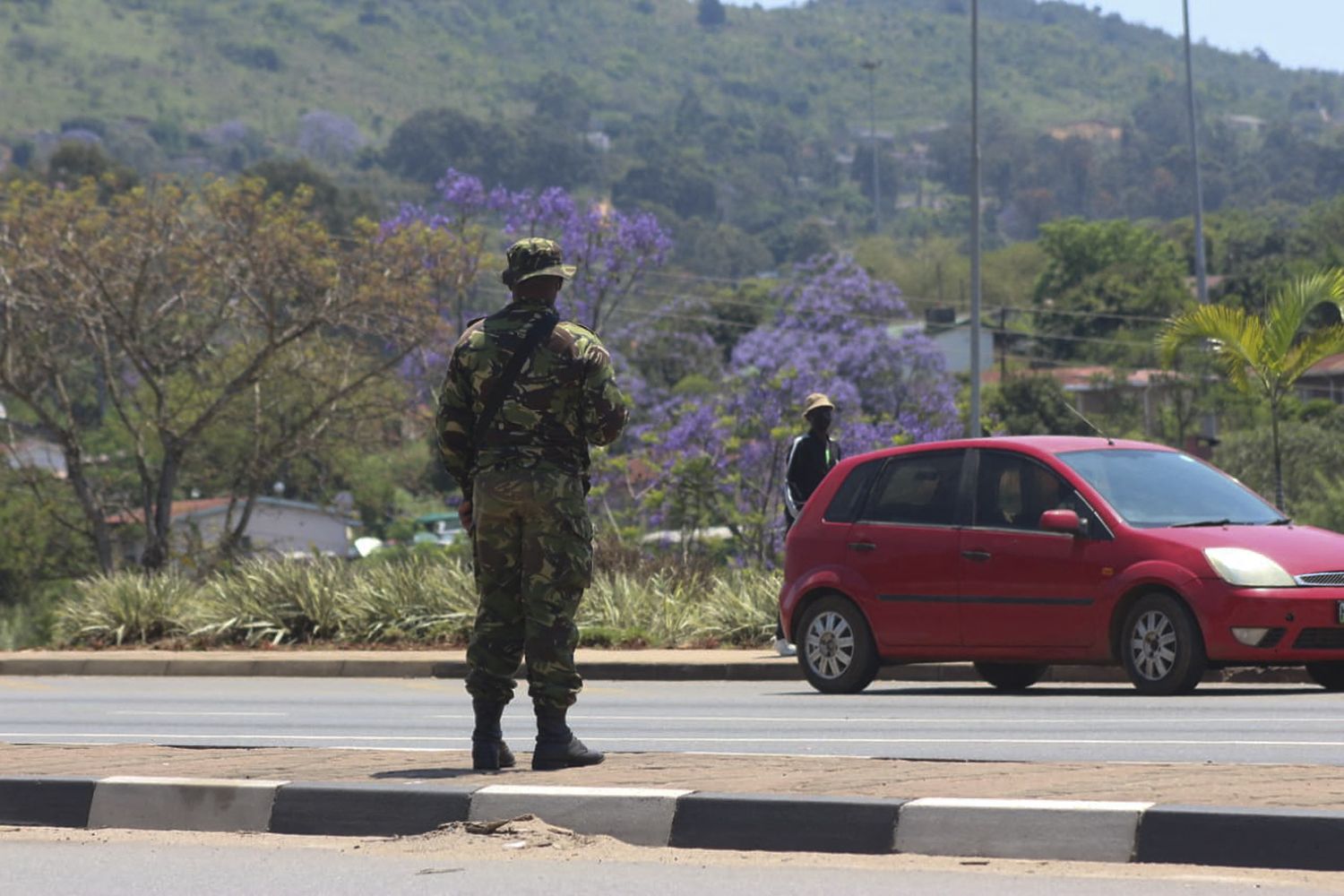Eswatini has been rocked by demonstrations that broke out in June and have prompted authorities to deploy the army and cut off internet.

This video grab from an AFPTV video taken on October 19, 2021 in Manzini shows an armoured police vehicle driving in the streets. – Protesters gathered against police brutality in Manzini, Eswatini, a country rocked by a wave of pro-democracy demonstrations. (Photo by AFPTV / AFP)
Africa’s last absolute monarch on Saturday called for calm and dialogue in the kingdom of Eswatini following a visit by regional mediators to try resolve the national crisis and deadly unrest.
Formerly known as Swaziland, the country has been rocked by demonstrations that broke out in June and have prompted authorities to deploy the army and shut down the internet.
The latest flare-up has run for more than two weeks, spearheaded by students, civil servants and transport workers.
At least two people were killed and dozens injured as security forces fired tear gas, live rounds and rubber bullets to disperse crowds.
His traditional prime minister Themba Ginindza said via the government Twitter account that “King Mswati III has announced that a process of national dialogue… will be initiated” after an annual ritual ceremony that starts in November and usually lasts several months.
During the ceremony known as Incwali, the king goes into seclusion and does not engage in official government activities.
Ginindza said the king wanted calm, and “an end to all violence as no dialogue can happen while tempers are this high”.
YOU MIGHT ALSO LIKE: The two sides in Eswatini: Those with guns, and everyone else
“His majesty has sent us to pass our sincere condolences to all who have lost loved ones during the unrest,” said Ginindza.
Police said 37 people have died since the violent anti-monarchy protests first flared, fuelled by discontent over living conditions and lack of political freedom in the tiny southern African kingdom.
But local civic group Leftu Sonkhe Institute of Strategic Thinking and Development suggests the unrest has so far claimed around 80 lives.
On Thursday government banned all protests.

Mediators from the 16-nation Southern African Development Community concluded two-day mediation talks with the king, government and civil society groups on Friday.
In a statement on Saturday, SADC’s head of politics and defence, South African President Cyril Ramaphosa, backed the idea of a national dialogue.
“I appeal for calm, restraint, the respect for the rule of law and human rights on all sides to enable the process to commence,” said Ramaphosa.
The government also restored internet links Friday, two days after it had pulled the plug on most access.





